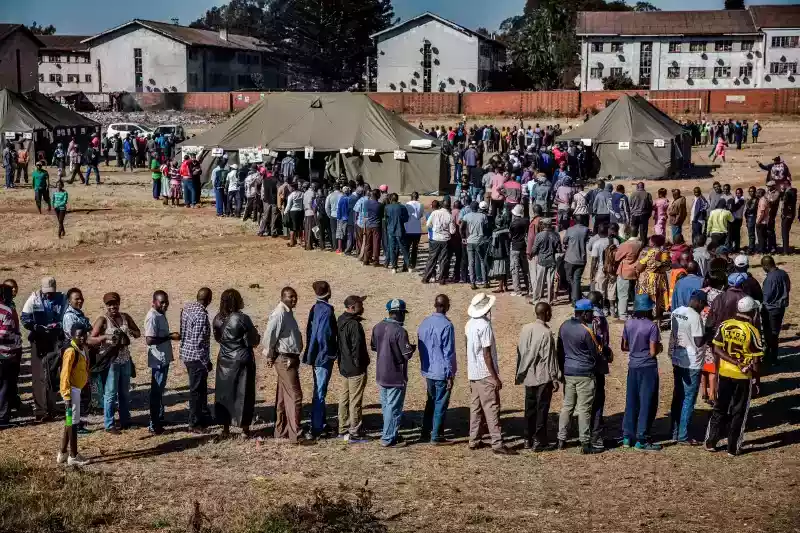
DEBATE continues on whether African countries can transform their societies to become developmental-based solely on policy documents and without a major revolution. The past seven decades are littered with a myriad of policy failures, both national and global.
By Tapiwa Gomo
At global level, policy ideas on development have shifted from one paradigm to another, gobbling billions of dollars along the way and yet the continent has remained stagnant. Africa continues to give more than it is receiving or accruing. Its people continue to wallow in poverty. Recent studies on development have, even without gaining global traction, concluded that development in its current format, will never transform the continent from where it is today to match other regions. Current global policies on development are among the biggest lies of our times.
This conclusion is based on several factors. Firstly, Africa has continued to be a recipient of external policy prescriptions that have no history or evidence of causing development anywhere else in the world. These policy prescriptions have always been designed or influenced by the same regions that had economic and colonial interests on the continent. Hence the goal of such ideas is to sustain the colonial relationship with Africa. Regions or countries that have developed thus far, did not do so by being recipients of such ideas. While, the continent claim partial political independence, it has remained under the management of colonial interests. It is not the colonialist’s or western countries’ fault. Africans have not yet decided to develop.
This leads to the second point. Africa is yet to give itself a chance to be independent. There is a colossal fear to detach, self-determine and to pursue what is appropriate. There is fear of isolation and global sanctions and yet countries that have done so, are examples of economic growth and development. This fear is underpinned by nothing but stupidity. Political independence implies sovereignty — the right for governments to exercise freely the full range of power a State possesses under international law. It also means the independent country’s legal ability to make their own decisions about their domestic and foreign policies. In terms of development and economic growth, this opportunity has been squandered by the fear to be different.
Escaping from this bondage and instigate social transformation requires more than just good sounding policies and mechanical strategic plans. Once in a while, societies must renew themselves and redefine who they are in order to meet the demands of today. That calls for social transformation which in itself is an outcome of a revolution – a rallying call towards a home-grown idea. It starts with the realisation that no one but ourselves can change our lives. Those who are better than us today have pursue that route. History tells us so.
The 18th Century was a period of far-reaching social and political upheaval in France from 1789 until 1799 in what is now known as the French Revolution. The French people’s increasing expectations for better life and political freedom were thwarted by the monarchial and aristocratic governments. These frustrations exploded, leading to the downfall of these government systems and paved way for industrialisation in France and spread its global influence in Europe and beyond. The French could have chosen not to do something about their situation and remain poor and oppressed internally and externally. But they chose to fight, conquer and prosper.
During the same century, the American Revolution — a colonial revolt — broke out specifically to fight against the same corrosive political and economic relationship with Britain — the same policy positions that have kept Africa in the doldrums today. The American Patriots rejected the authority of the British Parliament to tax them because they lacked representation in that governing body. That was the beginning of their independence from Great Britain to become the United States.
- Chamisa under fire over US$120K donation
- Mavhunga puts DeMbare into Chibuku quarterfinals
- Pension funds bet on Cabora Bassa oilfields
- Councils defy govt fire tender directive
Keep Reading
With independence and sovereignty in their hands, longing for industrialisation in the 19th Century, Americans were confronted by the challenges of slavery in the southern states, systems based on exportation of raw materials such as cotton and tobacco — the same way African economies are structured to survive on exports. At a colossal human and economic cost, a civil war broke out between the North and South, leading to the elimination of slavery in 1865. With egalitarian transformation, came industrialisation which spawned an economic boom that led America to be the largest and most sophisticated economy in the world, overtaking that of Great Britain.
China is the most successful development and economic growth stories of recent years. A policy change transformed the Asian country to become the second-largest economy in the world, lifting hundreds of millions of its people out of poverty. This Chinese story would not have happened without the cultural revolution of 1966 — 1976, which weakened the Communist Party, and the death of Mao Zedong and his faction. China’s economic growth story was a culmination of a conflict triggered by expectations for higher living standards unfulfilled during the Maoist era, which lasted from 1949 to 1976. Development is demanded and revolutions are means to that end.
Tapiwa Gomo is a development consultant based in Pretoria, South Africa











